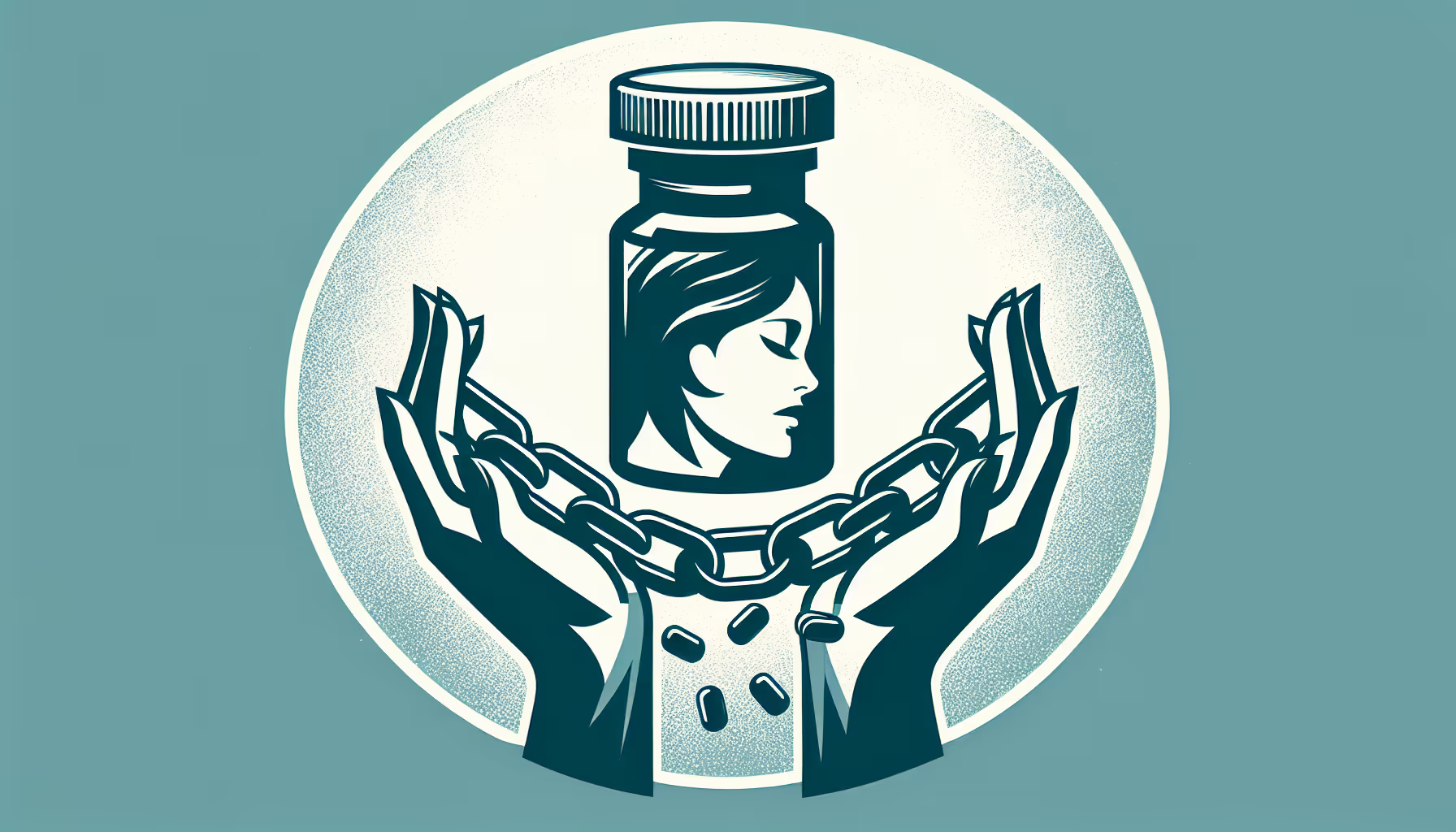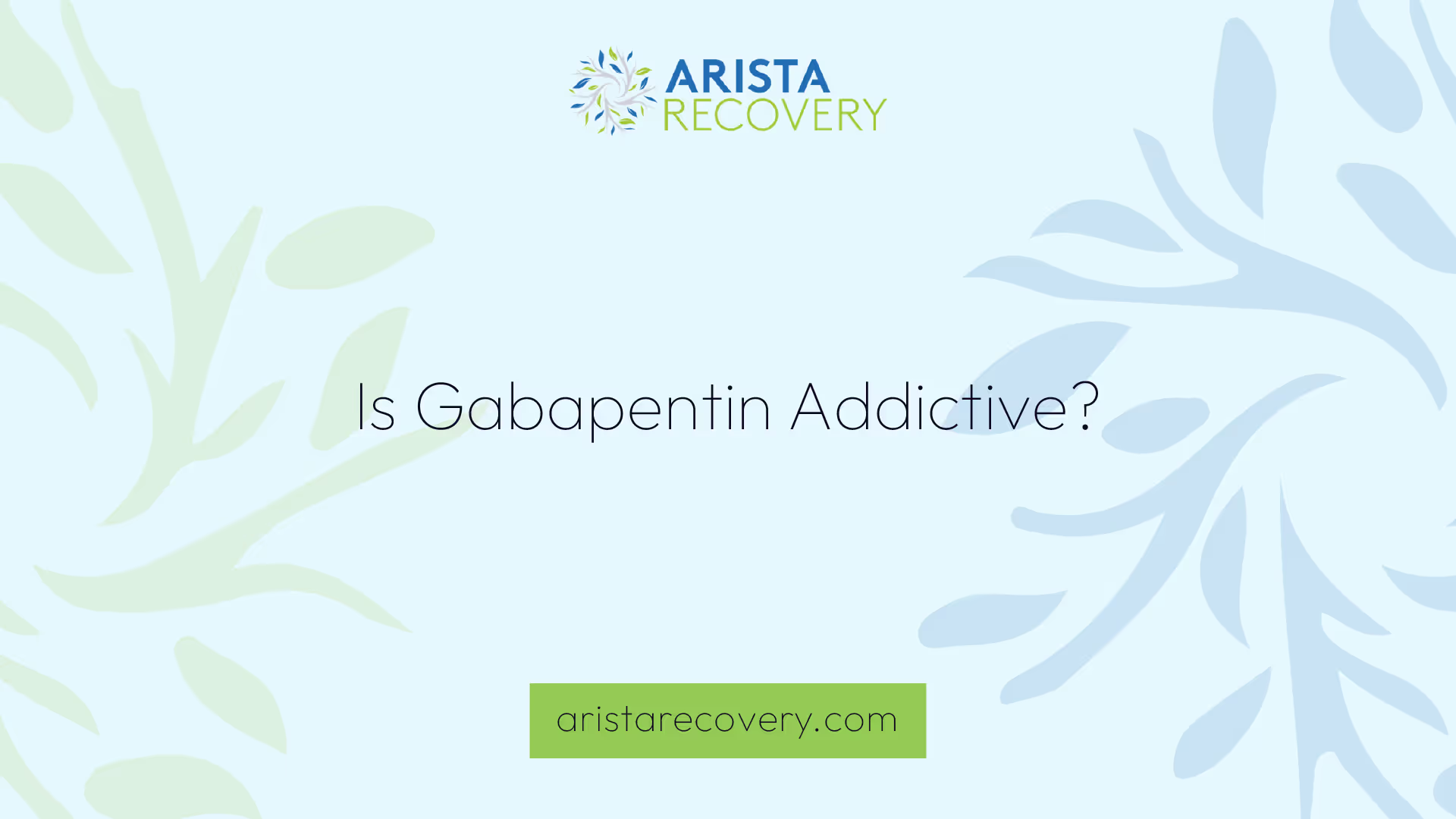
Understanding Gabapentin Use
As we explore the question, "is gabapentin addictive?", it's essential to first understand the nature of gabapentin use and the potential for misuse and abuse.

Gabapentin Overview
Gabapentin, initially approved in 1993, is commonly believed to have a low potential for abuse and addiction compared to other substances. It is not currently scheduled as a controlled substance under the Controlled Substances Act by the DEA [1]. It was designed with minimal risk of dependence and addiction in mind. However, recent observations have suggested that this may not always be the case, leading to a reevaluation of its safety profile.
Gabapentin Misuse and Abuse
While gabapentin is not typically classified as addictive, a small number of studies have reported misuse and abuse of gabapentin [2]. Gabapentin abuse tends to occur in individuals who already have an addiction to opioids or other drugs. Studies have shown that a significant percentage of people abusing Gabapentin concurrently use other drugs to achieve a high.
In some instances, misuse of gabapentin can lead to physical and psychological dependence, requiring medical detox and professional guidance to quit safely and reduce the likelihood of severe withdrawal symptoms like anxiety, insomnia, nausea, pain, and sweating.
Furthermore, gabapentin has been increasingly associated with drug abuse, especially when mixed with opioids, alcohol, or other substances, and illegal diversion has led to its street availability [4].
These findings suggest the need for increased awareness and cautious use of gabapentin, especially in individuals with a history of substance misuse or addiction. Future sections will delve deeper into the addiction risks, effects of misuse, legal status, and strategies for managing gabapentin dependency.
Gabapentin Addiction Risks
The question, "is gabapentin addictive?" is one that has gained attention in recent years. This section will explore the addiction potential of gabapentin and the factors that contribute to its misuse.
Addiction Potential
Despite its introduction in 1993 as a medication with minimal risk, gabapentin has been shown to lead to dependence, addiction, and withdrawal in some individuals. Over time, it has been increasingly associated with drug abuse, especially when mixed with opioids, alcohol, or other substances. This growing misuse and illegal diversion have contributed to its street availability.
In the general population, approximately 1% of people are estimated to misuse gabapentin. However, among individuals abusing opioids, studies show a range of 15% to 20% abusing the drug. At drug abuse treatment centers, up to 22% were reported to misuse gabapentin, often to enhance the effects of opioids [4].
Factors Leading to Addiction
Several factors can contribute to the misuse or addiction of gabapentin. One significant indicator is the frequent use of gabapentin by individuals already abusing other medications. This includes opioid painkillers, muscle relaxants, Valium, and Xanax, which are often used to intensify the high feeling.
The combined abuse of gabapentin and opioids can elevate the risk of respiratory depression and opioid-related overdose and death by up to a 4-fold increase. Serious breathing issues can also arise when gabapentin is used with other medications causing severe drowsiness or by individuals with existing breathing problems.
Withdrawal symptoms from gabapentin, when abruptly discontinued, can include seizures that do not stop. This is especially dangerous in patients with epilepsy. Documented cases of withdrawal symptoms were observed in individuals taking daily doses ranging from 400 mg to 8000 mg for at least 3 weeks [4].
These addiction risks underline the importance of using gabapentin responsibly and under the supervision of a healthcare provider. Any concerns about gabapentin use or potential misuse should be discussed promptly with a healthcare professional.
Effects of Gabapentin Misuse
Misuse of gabapentin can lead to several adverse effects, including symptoms of overdose and withdrawal. It's essential to understand these symptoms to identify potential misuse or addiction.
Overdose Symptoms
Overdose on gabapentin can occur when a person takes more than the recommended dose. Overdose symptoms can be severe and require immediate medical attention. According to Cleveland Clinic, MedlinePlus, and Drugs.com, common symptoms of a gabapentin overdose include:
- Double vision
- Slurred speech
- Drowsiness
- Diarrhea
- Sluggishness or lethargy
If you or someone you know experiences these symptoms after taking gabapentin, it's important to seek medical help immediately.
Withdrawal Symptoms
Just as with other substances, stopping gabapentin suddenly can cause withdrawal symptoms. These symptoms can range from mild to severe, depending on how long a person has been taking the drug and the dosage they have been using. It's highly recommended to consult with a healthcare provider before stopping the use of gabapentin to manage these potential withdrawal symptoms safely.
Common gabapentin withdrawal symptoms include:
- Anxiety
- Restlessness
- Irritability
- Sweating
- Nausea
- Insomnia
Recognizing these symptoms can be crucial in identifying a possible dependency on gabapentin. If a person experiences these symptoms when they stop taking the drug, it may indicate that they have developed a dependence on it. It's important to seek professional help to manage these symptoms and minimize the risks associated with gabapentin withdrawal.
Legal Status of Gabapentin
To address the question "is gabapentin addictive?", it's crucial to consider its legal status and relevant classification. This includes its classification by the Drug Enforcement Administration (DEA) and various state regulations.
DEA Classification
As per the DEA, gabapentin is not currently scheduled as a controlled substance under the Controlled Substances Act. This classification implies that the DEA does not consider gabapentin as having substantial potential for abuse or dependence [1].
Despite this, it's crucial to understand that gabapentin is a prescription medication with a specific medical purpose. Its primary use is to control seizures in individuals with epilepsy, manage postherpetic neuralgia (PHN), and treat restless legs syndrome (RLS).
State Regulations
Though not classified as a controlled substance federally, some states have taken additional measures due to concerns about misuse and abuse. In Kentucky, West Virginia, Michigan, Tennessee, and Virginia, gabapentin has been reclassified as a Schedule V controlled substance.
However, in most states, gabapentin is not classified as a controlled substance. This disparity in classification underscores the ongoing debate about gabapentin's addictive potential and the need for stricter control measures.
It's important to note that even though gabapentin is not considered addictive and is not a controlled substance, stopping the medication abruptly can lead to withdrawal symptoms such as anxiety, difficulty sleeping, nausea, pain, and sweating, particularly for individuals taking it to treat seizures. Therefore, it's crucial to use this medication responsibly and under the guidance of a healthcare provider.
Managing Gabapentin Dependency
Addressing the question, "is gabapentin addictive?" requires a nuanced approach given its potential for misuse and dependency. This section will explore treatment options and managing withdrawal symptoms for individuals who fall into a pattern of dependency.
Treatment Options
While gabapentin is not classified as an addictive substance, misuse can lead to physical and psychological dependence. This requires medical intervention and professional guidance to safely discontinue use and mitigate severe withdrawal symptoms such as anxiety, insomnia, nausea, pain, and sweating [3].
It's essential to note that gabapentin is known to help control conditions but does not cure them. Therefore, individuals should continue taking the medication even if they feel well. Abrupt cessation can lead to withdrawal symptoms, particularly for those using it to treat seizures [5].
Treatment options may include:
- Medical Detox: Under the supervision of medical professionals, this process ensures safe removal of the drug from the system while managing withdrawal symptoms.
- Behavioral Therapy: This approach helps individuals understand their patterns of abuse and develop strategies to break these patterns.
- Medication-Assisted Treatment (MAT): In some cases, other medications may be prescribed to manage withdrawal symptoms and prevent relapse.
Withdrawal Management
Managing withdrawal symptoms is a critical part of treatment for gabapentin dependency. These symptoms have been reported, usually after discontinuing higher-than-recommended doses of gabapentin and for uses for which the drug was not approved.
Common withdrawal symptoms include:
- Anxiety
- Difficulty sleeping
- Nausea
- Pain
- Sweating
Given these potential symptoms, it's crucial to consult a doctor before discontinuing gabapentin use [5]. A healthcare professional can design a safe and effective tapering plan to reduce withdrawal symptoms, which is an essential step in managing gabapentin dependency.
Addressing gabapentin dependency requires a comprehensive approach involving medical intervention, behavioral therapy, and careful management of withdrawal symptoms. It's vital that anyone experiencing issues with gabapentin use seek professional help to navigate this process safely.
Gabapentin and Co-occurring Addictions
A further aspect of the question, "is gabapentin addictive?" is the interaction of gabapentin with other substances. This is a significant consideration, as the misuse of gabapentin often occurs alongside the misuse of other substances such as opioids and alcohol.
Opioid Interaction
Gabapentin has been shown to lead to dependence, addiction, and withdrawal in some individuals, especially when mixed with opioids. In the general population, approximately 1% of people are estimated to misuse gabapentin. However, in individuals abusing opioids, studies show a range of 15% to 20% abusing the drug. At drug abuse treatment centers, up to 22% were reported to misuse gabapentin, often used to enhance the effects of opioids.
Signs indicating misuse or addiction to gabapentin include its frequent use by individuals already abusing other medications like opioid painkillers, muscle relaxants, Valium, and Xanax to intensify the high feeling.
Respiratory Risk Factors
The combined abuse of gabapentin and opioids can elevate the risk of respiratory depression and opioid-related overdose and death. Serious breathing issues can also arise when gabapentin is used with other medications causing severe drowsiness or by individuals with existing breathing problems.
These findings highlight the importance of monitoring and managing gabapentin use, particularly in individuals who are concurrently using other substances. It's crucial that healthcare providers, patients, and their support networks are aware of these risks and take appropriate steps to mitigate them. This includes closely monitoring medication usage, providing education about the risks of misuse, and ensuring access to appropriate support and treatment for those who develop a dependency on gabapentin.
References
[2]: https://my.clevelandclinic.org/health/drugs/21561-gabapentin
[3]: https://www.addictioncenter.com/drugs/gabapentin/
[4]: https://www.drugs.com/medical-answers/gabapentin-addictive-3573085/
When mental health challenges and addiction intersect, it can feel isolating. At Arista, we offer compassionate, evidence-based, and trauma-informed care to help you heal, grow, and move forward.
Is Gabapentin Addictive?
You’re not alone in this.
When mental health challenges and addiction intersect, it can feel isolating. At Arista, we offer compassionate, evidence-based, and trauma-informed care to help you heal, grow, and move forward.
Support that moves with you.
You’ve taken a brave first step. At Arista Recovery, we’re here to help you continue with best-in-class care designed for long-term healing and support.
.webp)






